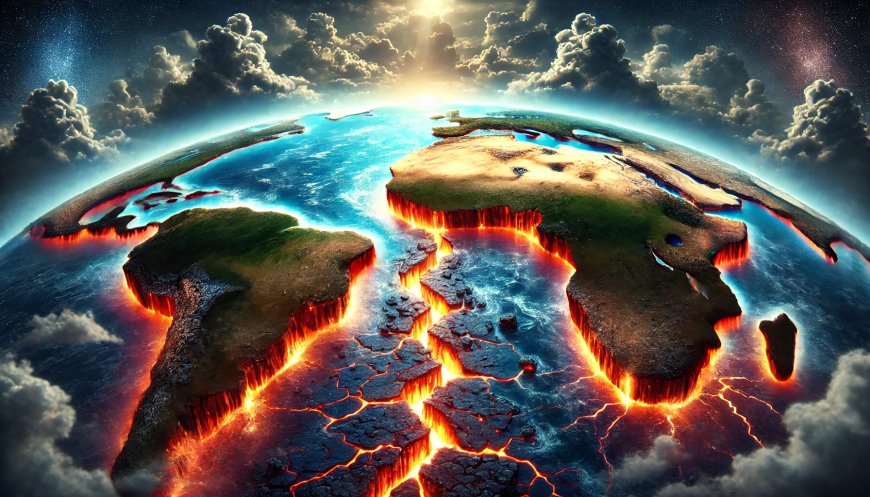Scientists Warn: These Countries Could Sink as Earth's Crust Becomes Unstable
Scientists predict that East Africa will eventually split into two due to powerful tectonic forces, leading to the formation of a new ocean. The African and Somali plates are pulling apart at 0.8 cm per year, accelerating a process that was once thought to take millions of years. This geological shift will permanently reshape Africa’s geography, bringing significant ecological and demographic changes. Although it won’t happen overnight, the Earth is continuously evolving.

The Growing Threat of Land Subsidence
According to geologists, certain regions are experiencing accelerated subsidence due to tectonic activity, groundwater depletion, and excessive urban development. Countries most at risk include:
-
Indonesia – Jakarta, the nation’s capital, is sinking at an alarming rate of up to 10 centimeters per year due to groundwater extraction and soft soil composition.
-
Bangladesh – With large portions of the country lying just above sea level, increasing coastal erosion and rising waters threaten millions.
-
The Netherlands – Despite advanced flood defenses, parts of the country are gradually sinking due to soil compaction and groundwater usage.
-
The Maldives – This island nation could be completely submerged within the next century as ocean levels continue to rise.
Geophysicist Dr. Alan Peterson explained, "Many of these regions are experiencing subsidence much faster than anticipated. This, combined with climate-driven sea level rise, significantly increases the risk of permanent land loss."
Climate Change’s Role in the Crisis
Rising global temperatures have intensified melting polar ice caps, contributing to rising sea levels that further exacerbate subsidence. Studies indicate that by 2100, global sea levels could rise by over a meter, potentially displacing millions in vulnerable regions.
Dr. Maria Gonzales, a climate scientist, emphasized, "This is no longer a distant threat—it’s happening now. Governments need to take immediate action by improving infrastructure and reducing carbon emissions."
Mitigation and Possible Solutions
Countries facing the highest risks are exploring various strategies to mitigate land loss:
-
Artificial land reclamation – Some nations, like the Netherlands, are reinforcing coastlines with engineered barriers.
-
Relocation efforts – Indonesia has already begun moving its capital from Jakarta to Nusantara in response to its sinking predicament.
-
Environmental conservation – Protecting mangroves and wetlands can help reduce erosion and provide natural flood defenses.
The Global Call to Action
The report urges world leaders to prioritize climate resilience policies, invest in sustainable urban planning, and curb emissions to slow down these catastrophic changes. Scientists warn that without intervention, millions of people could become climate refugees within the next few decades.
What's Your Reaction?












/https://tf-cmsv2-smithsonianmag-media.s3.amazonaws.com/filer_public/54/66/546650fa-26a4-40fd-8d6d-5a7a04540f81/rosetta2.png)
:max_bytes(150000):strip_icc():focal(999x0:1001x2)/robert-prevost-050825-1-39395418ab494da5a3a700c9478e66c8.jpg)















































format(webp))
format(webp))

























